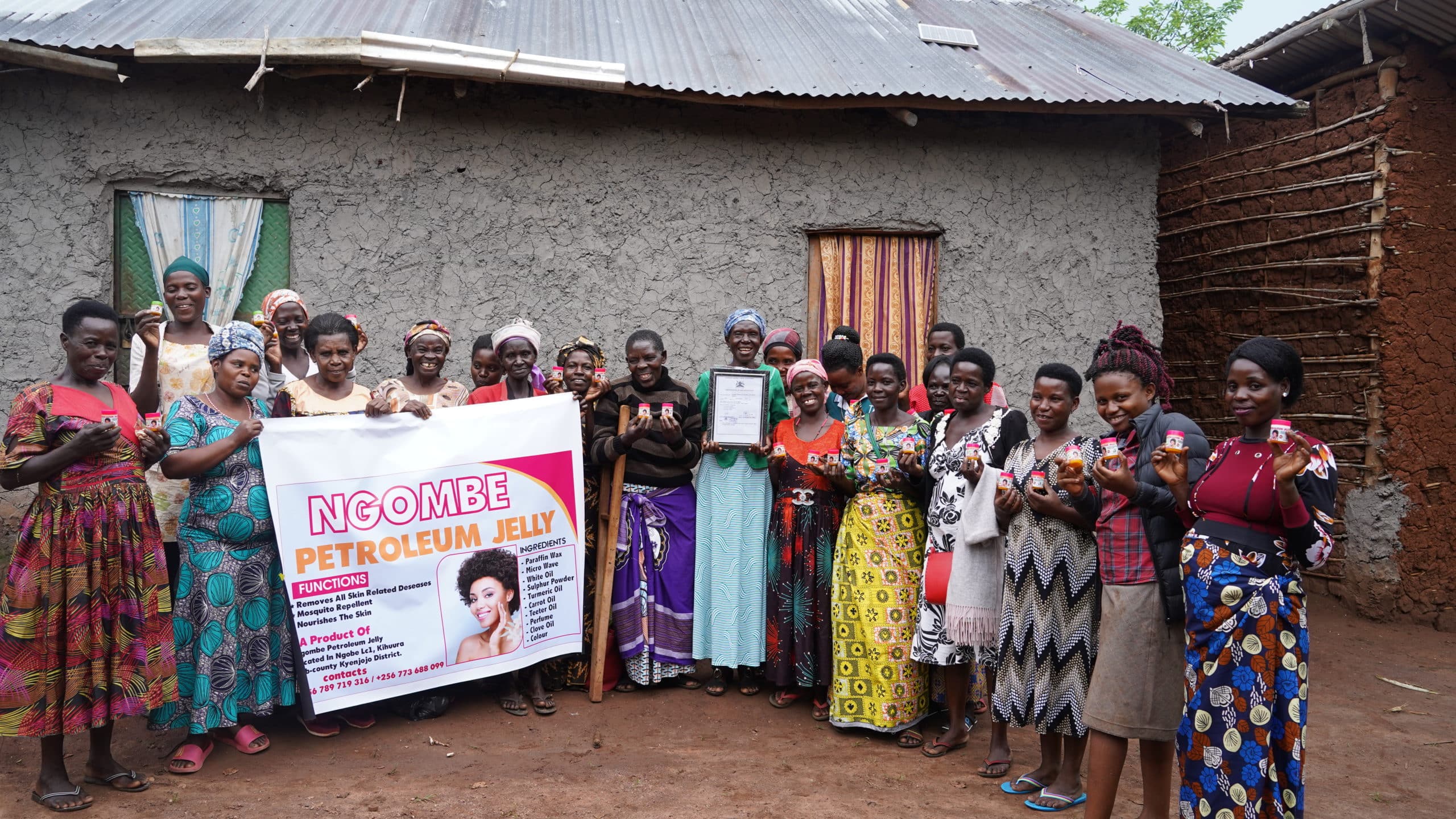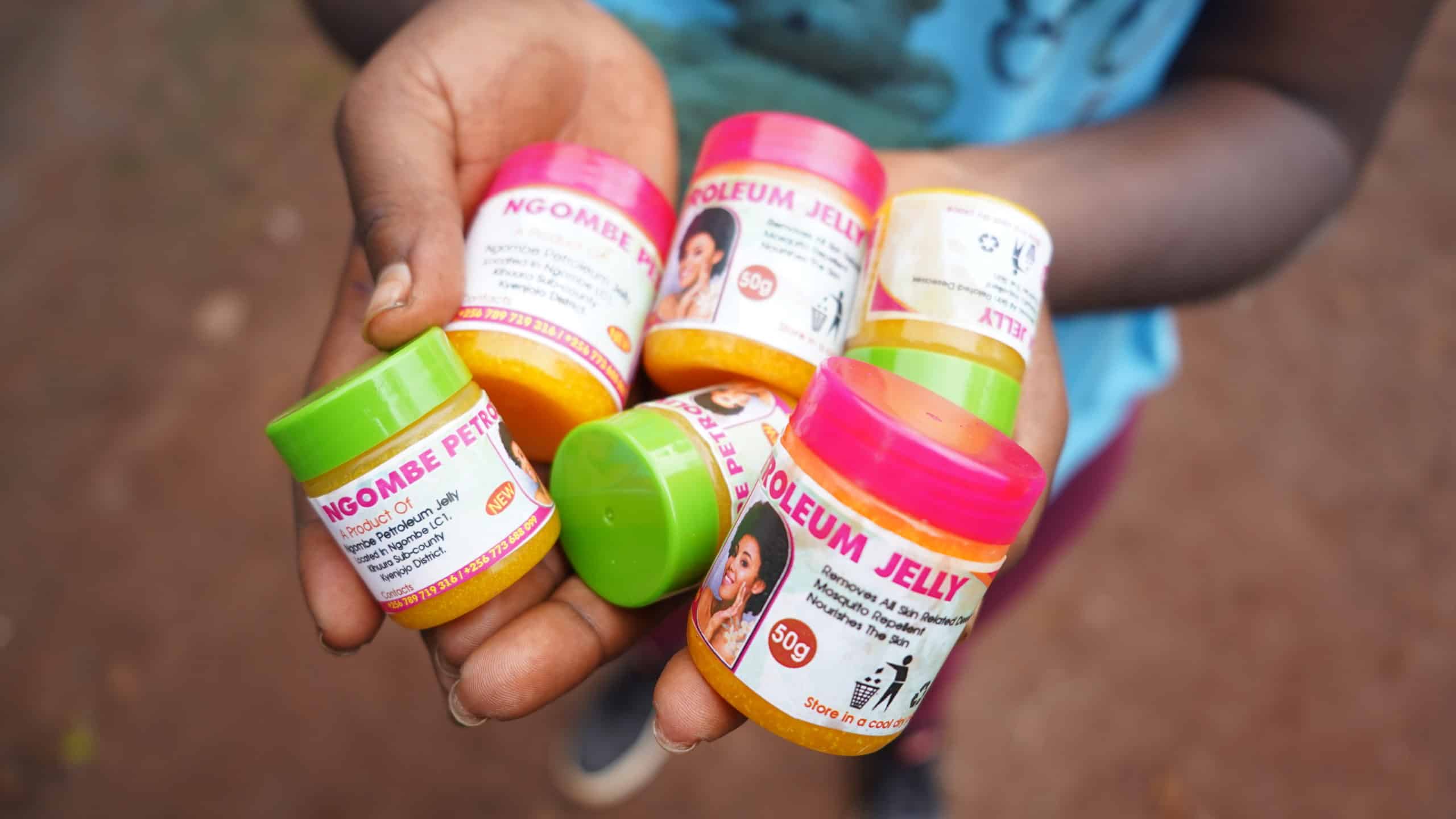Fueled by Knowledge and Ambition

When the Ngombe Women’s Village Savings and Loan Association (VSLA) started its petroleum jelly business in June 2023, they began with the hope that it would supplement their agricultural income. Six months after its beginning, the business generates about 300,000 UGX in weekly revenue and is well on its way to being the primary income source for some families.
For most people residing in the Ngombe, a remote village in the district of Kyenjojo, agriculture has been the main income source, followed by manual labor. While traditional farming did not provide great returns, lack of affordable credit and know-how on starting a business meant fewer opportunities. In 2023, when the community partnered with RTV under the “From Last Mile Into Possibilities” (FLIP) project, a comprehensive plan was drawn to address such barriers to development and increase household incomes.
Supported by the Government of Canada through Global Affairs Canada (GAC), the FLIP project aims to improve agricultural incomes sustainably for last-mile communities, focusing on holistic and equitable development. As part of the project, the community participated in training sessions on modern farming techniques, financial literacy, forming cooperatives to pool resources, and various other aspects of community-led development. As the community began to improve their farming output and incomes, various VSLAs were set up to pool savings and use them for community development initiatives and to provide affordable credit. The petroleum jelly-making initiative directly resulted from one such VSLA formed by the community’s women.

“A local Government official trained us on various projects such as bar and liquid soap making, producing petroleum jelly, and weaving baskets. Petroleum jelly has good demand and is also useful for various skin conditions,” mentions Kabasomi, a member of the women’s savings group.
Funds pooled by the VSLA and personal contributions helped procure raw materials such as wax, various types of oils, and packaging containers. Once ready to be sold, the group employed promotional pricing to gain customers. “We started with a promotional price of UGX 500 and UGX 1000 for 30g and 50g bottles, respectively, to gain customers and not focus on just making a profit initially,” says Jacy, the group secretary. “As more people started buying our product, we gradually increased prices to cover our production costs and generate some profit,” she adds. The 30g variant is currently priced at UGX 1000, while the 50g is sold for UGX 2000.
They currently produce 200 tins of petroleum jelly every week. By re-investing most of their profits into the business, they aim to increase their weekly production to 1000 tins, acquire a dedicated workspace, and buy sealing and packaging machines.
The group has already charted a strategic course for this year, with plans to obtain certification from the Uganda National Bureau of Standards (UNBS); they aim to supply their products nationwide and increase their product range. “We plan to diversify our production by introducing hair shiners, shampoo, aftershave, and pain balm, among others. While we may be currently limited by capital, we are driven by knowledge and ambition,” Jacy concludes.
Be part of our journey. Support last-mile communities by supporting Raising The Village.
Let’s Stay Connected

